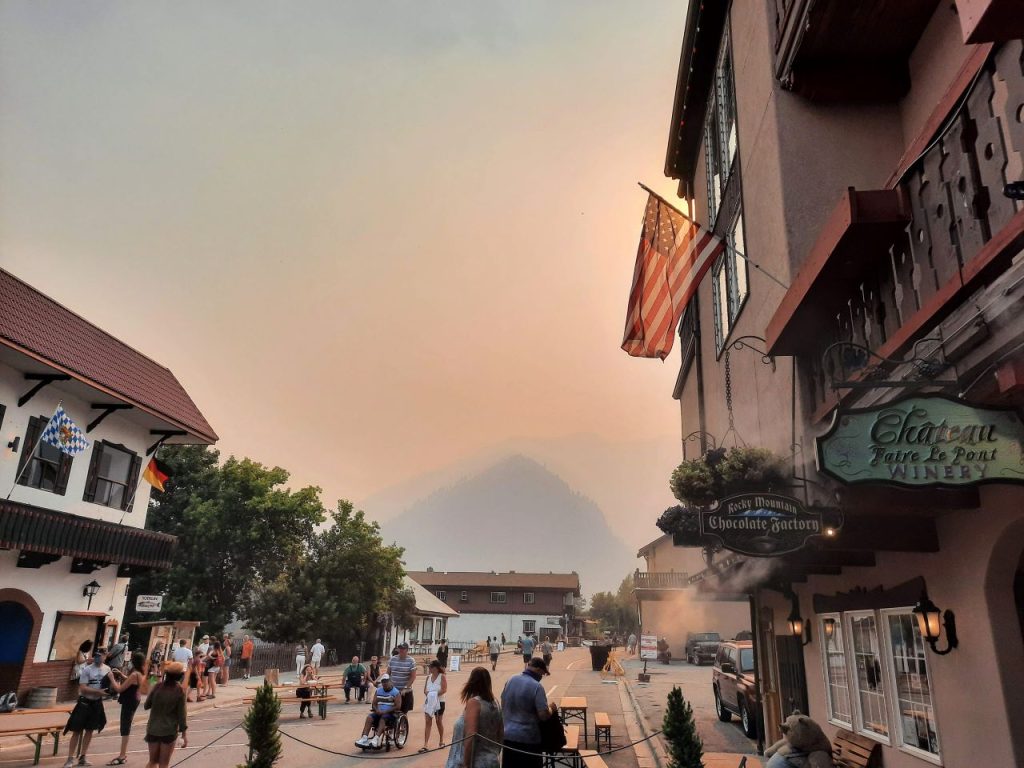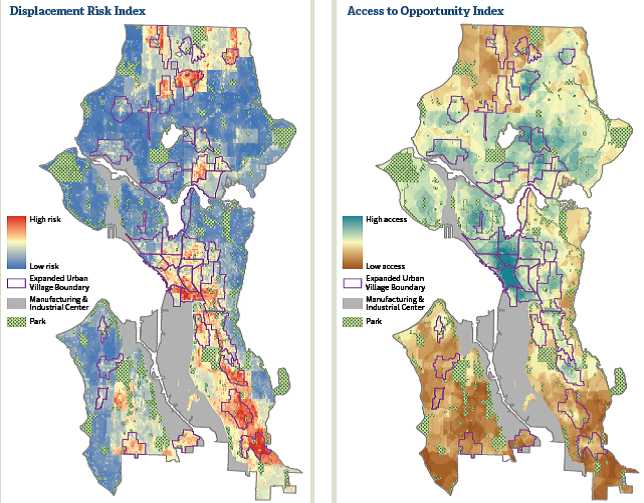
For years, Washington failed to fully address climate change, rising housing insecurity, and the impacts of decades of environmental injustice. This summer, wildfires coupled with the Covid-19 pandemic, provided a very tangible sense of the growing threat resulting from this failure.
The pandemic laid bare the risks of housing insecurity and demonstrated the increased risks of mortality from Covid-19 in areas subject to higher rates of pollution. July saw a peak in infection rates and then, in late August and early September, out-of-control wildfires across the state resulted in weeks of lethally unhealthy air and hundreds of thousands of acres of burned land. As the summer made clear, Washington cannot wait to mitigate climate change and increase community resilience. Nor can it wait to address decades of state policies negatively affecting communities of color, or resolve the growing crisis of housing insecurity.
Although these issues are complex, the legislature has a unique opportunity to directly address them all next year by passing much-needed legislative updates to the Growth Management Act (GMA). Futurewise’s Washington Can’t Wait campaign aims to ensure that the legislature passes three amendments, one focused on climate change, one focused on housing insecurity, and one focused on environmental justice.
These issues are not new, and this summer was not the first time Washingtonians felt their impact. Climate change affects lives and livelihoods from private shellfish farmers, hit by low survival of juvenile oysters in acidic waters, to members of the Quinault Nation resident in Taholah and Queets, relocating because of rising seas. Climate change promises to bring more, and more intense, wildfires, more extreme temperature events, increasing rates of epidemic and pandemic disease outbreaks, rising sea levels, and increasing ocean acidification. Numerous species are at risk from the tiny American pikas calling from cracks in the talus to the Columbia’s Chinook salmon that feed us (and our orcas). It is not an understatement to label climate change as an existential threat. To mitigate climate change we must reduce emissions and increase carbon uptake. But it is not enough anymore just to mitigate, we also must build for resilience.

Climate change overlaps directly with decades of environmental injustice and housing inequity. Washington’s communities of color face the highest risk of negative impacts from climate change, such as mortality and illness from extreme temperatures because historic redlining and other policies concentrating vulnerable populations into urban heat islands. These impacts overlap with other disparate health effects, for example, respiratory illness from pollution, deriving from environmentally unjust policies locating polluting industries unequally across the state. Housing costs continue to rise, forcing more than 30% of Washingtonians into residential insecurity where they spend most of their paycheck to cover rent or home ownership, or find themselves pushed onto the streets. This affordability crisis reinforces historic racially-biased housing policies. And those without a home, or facing insufficient housing, are most susceptible to the effects of climate change.
Remarkably, the GMA, which drives land use planning for the state, does not require cities, towns, and counties to consider climate change mitigation or resilience in their comprehensive planning. Nor does it require consideration of environmental justice, even though disenfranchisement arising from active, and less active but no less harmful decision-making, permeates land-use decisions and their impacts across the state. The Washington legislature has the opportunity in the next legislative session to make a difference by adopting updates to the GMA.
The GMA has driven land use planning across Washington cities, towns, and counties for the past 30 years. It is the invisible framework for our day-to-day experience of the space we live in. The GMA requires cities, towns, and counties to identify critical areas, such as wetlands and habitat for threatened species. It mandates most of these entities to adopt comprehensive development plans and regulations for the implementation of such plans. In their plans, cities, counties, and towns must address 14 elements including a housing element, a rural element, and a transportation element. The GMA requires regional coordination of land use planning and public involvement in land use decision-making.
Futurewise’s extensive experience helping shape the GMA’s legal contours since the act was first implemented means it has the unique capacity to identify gaps and draft legislative language that can effectively fill these gaps. These three proposed amendments will add language requiring planners to address climate change and environmental justice and update the housing element. The climate change amendment will require local governments to develop plans reducing emissions and creating accessible communities, with local access to parks, jobs, schools, and restaurants so that residents do not have to rely exclusively on private car transportation. The amendment will require local governments to plan communities resilient to the impacts of climate change. So, rather than waiting until residents suffer from disasters such as wildfires or drought, local governments will be required to protect lands that serve as buffers from climate change and identify the “hot spots” most likely to suffer from these disasters.

The environmental justice amendment will require towns, counties, and cities to evaluate and address past inequitable land use policies that have harmed communities of color across the state as evident in resources such as the Washington State Health Disparities Map. Moving forward, local governments will need to consider environmental justice concerns in any new planning. The update to the housing element will require cities, counties, and towns to more fully plan for a diversity of housing and identify and address the historic redlining and other exclusionary housing policies across the state. Local governments will need to identify areas at high risk of displacement and implement policies to prevent people from losing their housing in these areas, as well as develop adequate shelters and supportive housing for people without homes.
The time is long past due to address these issues. The legislature must pass the three updates to the GMA in the upcoming legislative session. In 2024, many cities and counties will submit their updated plans. These legislative updates will ensure that the next series of plans address the climate change and housing crises, and incorporate environmental justice across land use planning. You can make a difference right now by telling your state representatives that we cannot wait anymore to address these issues. Join Futurewise’s Washington Can’t Wait campaign to help shepherd the legislation through in 2021.

Jennifer Calkins
Jennifer Calkins, PhD, JD, is an attorney, evolutionary biologist and author who lives in Seattle with various creatures including teenagers. Her writing has appeared in the New York Times Scientist-at-Work blog and National Geographic, as well as in a variety of peer-reviewed scientific and legal journals. She is the author of three books including, most recently, Fugitive Assemblage.
